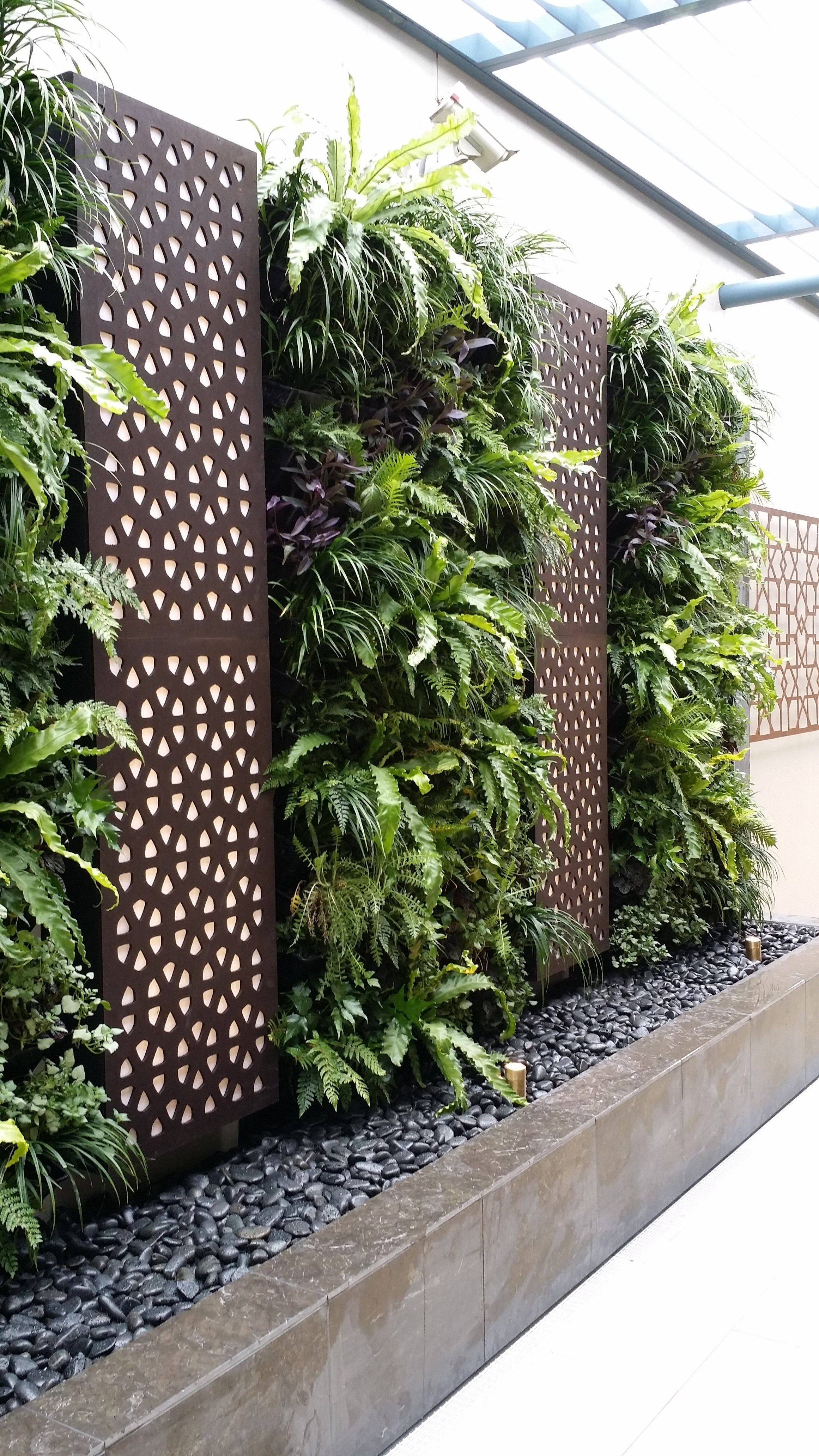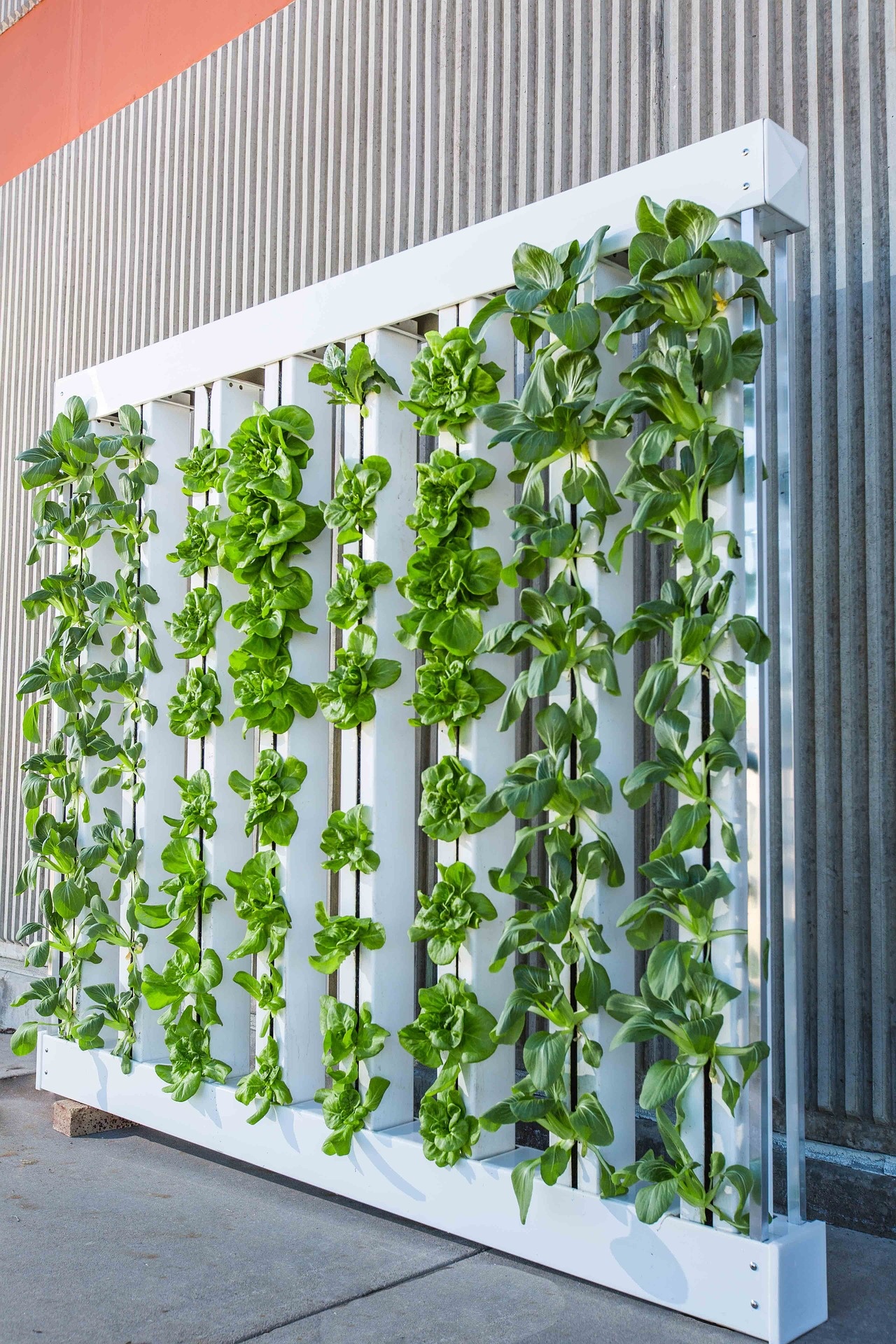How to Build a Modern Vertical Garden Wall: A Comprehensive Guide

Imagine transforming a bland, empty wall into a lush, vibrant oasis. Picture the cascading greenery, the burst of colors, and the fresh, invigorating scent of nature indoors. Welcome to the world of vertical gardening, where walls become living canvases. Whether you're looking to create an indoor garden or an outdoor green wall, this guide will walk you through every step of how to build a modern vertical garden wall. Let's dive in!
Understanding Vertical Gardening
Vertical gardening, also known as green walls or living walls, is the practice of growing plants on vertical surfaces. This innovative approach to gardening not only saves space but also adds a touch of nature to urban environments. Whether you're in a cramped apartment or a sprawling estate, a vertical garden can be a stunning addition to your space.
Benefits of a Vertical Garden
Before we get into the nitty-gritty of building your vertical garden, let's explore why you should consider this green wall wonder:
- Aesthetic Appeal: A vertical garden can transform any space into a lush, inviting environment.
- Air Purification: Plants naturally filter the air, making your indoor garden a breath of fresh air.
- Space Efficiency: Perfect for small spaces, vertical gardens maximize your available area.
- Therapeutic Effects: Surrounding yourself with greenery can reduce stress and improve mental well-being.
Planning Your Vertical Garden
Choosing the Right Location
The first step in building a modern vertical garden wall is selecting the perfect spot. Consider the following:
- Light Requirements: Ensure the location gets enough natural light for your chosen plants.
- Accessibility: Make sure the wall is easily accessible for maintenance and watering.
- Structural Support: The wall should be sturdy enough to support the weight of the garden.
Selecting Your Plants
Choosing the right plants is crucial for a thriving vertical garden. Here are some tips:
- Light Needs: Match the plants to the light conditions of your chosen location.
- Growth Habits: Opt for plants that grow well in vertical spaces, such as ivy, ferns, and succulents.
- Aesthetics: Mix and match plants for a visually appealing arrangement.
Building Your Vertical Garden
Materials and Tools
Gather the necessary materials and tools before you start:
- Frame or Panel: This will be the base of your garden.
- Growing Medium: Soil, coconut coir, or a hydroponic system.
- Irrigation System: Drip irrigation or a manual watering system.
- Plants: Your chosen greenery.
- Tools: Screwdrivers, drills, and measuring tape.
Step-by-Step Guide
Step 1: Prepare the Frame
Start by measuring and cutting your frame or panel to fit the wall. Ensure it's sturdy and can support the weight of the plants and growing medium.
Step 2: Install the Growing Medium
If you're using soil or coconut coir, fill the pockets or cells of your frame with the growing medium. For a hydroponic system, set up the water and nutrient delivery system.
Step 3: Plant Your Greenery
Carefully plant your chosen plants into the growing medium. Make sure they are securely placed to prevent them from falling out.
Step 4: Set Up the Irrigation System
Install your irrigation system to ensure your plants get the water they need. Drip irrigation is a popular choice for its efficiency and ease of use.
Step 5: Mount the Frame
Securely mount the frame to the wall. Use appropriate hardware to ensure it's firmly attached and can support the weight of the garden.

Maintaining Your Vertical Garden
Watering and Fertilizing
Regular watering and fertilizing are essential for a healthy vertical garden. Use a balanced fertilizer and follow the manufacturer's instructions for application.
Pruning and Trimming
Keep your plants looking their best by regularly pruning and trimming. Remove any dead or dying leaves to promote healthy growth.
Pest Control
Monitor your garden for pests and treat them promptly. Organic pest control methods are often effective and environmentally friendly.
Common Challenges and Solutions
Watering Issues
Problem: Overwatering or underwatering can lead to plant stress. Solution: Use a moisture meter to ensure your plants get the right amount of water.
Lighting Problems
Problem: Insufficient light can stunt plant growth. Solution: Supplement natural light with grow lights if necessary.
Structural Failures
Problem: A poorly mounted frame can lead to collapse. Solution: Ensure your frame is securely attached to the wall with appropriate hardware.

Conclusion
Building a modern vertical garden wall is a rewarding project that brings nature into your living space. From the initial planning to the final touches, each step is an opportunity to create a unique, living masterpiece. Whether you're aiming for an indoor garden or an outdoor green wall, the benefits of vertical gardening are countless. So, why wait? Start your vertical gardening journey today and transform your walls into a lush, green oasis.
FAQs
What is the best type of irrigation system for a vertical garden? Drip irrigation is often the best choice for vertical gardens due to its efficiency and ease of use.
Can I use any type of plant for my vertical garden? While you can use a variety of plants, it's best to choose those that thrive in vertical spaces and match the light conditions of your location.
How often should I water my vertical garden? The frequency of watering depends on the type of plants and the growing medium. Use a moisture meter to ensure your plants get the right amount of water.
What should I do if my vertical garden starts to wilt? If your garden starts to wilt, check for watering issues, lighting problems, or pest infestations. Address the underlying cause promptly.
Can I build a vertical garden on any type of wall? Most walls can support a vertical garden, but it's important to ensure the wall is structurally sound and can bear the weight of the garden.
0 Response to "How to Build a Modern Vertical Garden Wall: A Comprehensive Guide"
Post a Comment